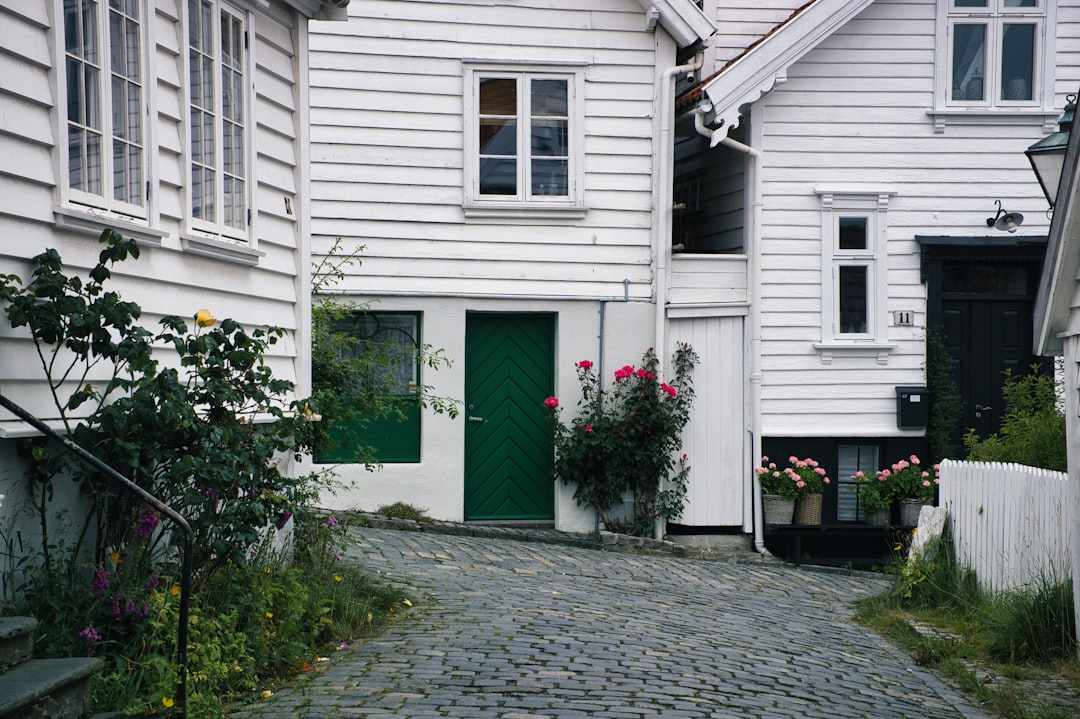In Norway, the role of a vaktmester, or caretaker, is integral to the smooth functioning of residential buildings and complexes. This individual is responsible for a myriad of tasks that ensure the upkeep and maintenance of the property. From overseeing repairs to managing the cleanliness of common areas, the vaktmester serves as a vital link between residents and the building management.
Their responsibilities often extend beyond mere maintenance; they are also tasked with fostering a sense of community among residents, ensuring that everyone feels comfortable and secure in their living environment. The vaktmester’s role can vary significantly depending on the size and type of the building. In larger complexes, they may have a team to assist them, while in smaller buildings, they might handle everything single-handedly.
Their duties can include everything from minor repairs, such as fixing leaky taps or changing light bulbs, to more significant responsibilities like coordinating larger renovation projects. Understanding the breadth of a vaktmester’s role can help residents appreciate their contributions and foster a more harmonious living environment. Plan your relocation with confidence. Book a personal meeting with the Norway Relocation Group today. https://norwayrelocation.no/one-hour-strategy-session/
Summary
- A vaktmester plays a crucial role in maintaining and managing the building’s facilities and common areas.
- Clear and respectful communication with the vaktmester is essential for addressing maintenance issues and building a positive relationship.
- Prompt reporting of maintenance issues to the vaktmester is important to ensure timely resolution and prevent further damage.
- It is important to respect and take care of common areas to maintain a pleasant living environment for everyone in the building.
- Understanding and following waste disposal rules is important for maintaining cleanliness and hygiene in the building.
Communicating with Your Vaktmester
Effective communication with your vaktmester is essential for maintaining a well-functioning living space. Residents should feel comfortable approaching their caretaker with questions, concerns, or requests for assistance. Establishing a good rapport can lead to quicker resolutions of issues and a more pleasant living experience overall.
It is advisable to be clear and concise when communicating your needs, as this will help the vaktmester understand the situation better and respond appropriately. Moreover, it is important to remember that the vaktmester is often juggling multiple responsibilities. Therefore, being patient and respectful in your interactions can go a long way.
If you have a non-urgent request or concern, consider sending an email or leaving a note rather than expecting immediate attention. This approach not only respects their time but also allows them to prioritise tasks effectively. Building a positive relationship with your vaktmester can lead to a more responsive and supportive living environment.
Reporting Maintenance Issues

When it comes to reporting maintenance issues, clarity and detail are paramount. Residents should take the time to document any problems they encounter, whether it be a malfunctioning appliance or a plumbing issue. Providing specific information about the nature of the problem, its location, and any steps already taken to address it can significantly aid the vaktmester in resolving the issue efficiently.
For instance, instead of simply stating that there is a leak, describe where it is occurring and how long it has been happening. Additionally, it is beneficial to report issues as soon as they arise rather than waiting for them to escalate. A small leak can quickly turn into a major problem if left unattended, leading to more extensive damage and higher repair costs.
By being proactive in reporting maintenance issues, residents not only help maintain the integrity of their living space but also contribute to the overall well-being of the community.
Respecting Common Areas
Common areas are shared spaces that play a crucial role in fostering community spirit among residents. It is essential to respect these areas by keeping them clean and tidy. Simple actions such as disposing of rubbish properly, cleaning up after oneself, and being mindful of noise levels can significantly enhance the communal living experience.
When residents take pride in their shared spaces, it creates an inviting atmosphere that encourages social interaction and cooperation. Moreover, respecting common areas also extends to understanding the rules and regulations governing their use. Many buildings have specific guidelines regarding the use of facilities such as laundry rooms, gardens, or recreational areas.
Familiarising oneself with these rules not only helps maintain order but also ensures that everyone can enjoy these spaces without conflict. By being considerate and respectful towards common areas, residents contribute to a harmonious living environment that benefits all.
Understanding Waste Disposal Rules
Waste disposal is an important aspect of communal living that requires everyone’s cooperation. Each building typically has specific guidelines regarding how waste should be sorted and disposed of. Understanding these rules is crucial for maintaining cleanliness and hygiene within the community.
Residents should familiarise themselves with the different bins available for recycling, composting, and general waste, ensuring that they dispose of their rubbish correctly. In addition to following disposal rules, residents should also be mindful of bulk waste disposal. Many buildings have designated days for collecting larger items such as furniture or appliances.
It is essential to adhere to these schedules to avoid cluttering common areas or causing inconvenience to others. By taking responsibility for waste disposal, residents not only contribute to a cleaner environment but also demonstrate respect for their neighbours and the community as a whole.
Dealing with Noise Complaints

Noise complaints are a common issue in multi-residential buildings and can lead to tension among neighbours if not addressed properly. It is important for residents to be aware of their noise levels, particularly during late hours when many people are trying to rest. Simple measures such as lowering volume levels on televisions or music systems can make a significant difference in maintaining peace within the building.
If you find yourself on the receiving end of noise disturbances, it is advisable to approach the situation calmly and respectfully. Consider speaking directly with your neighbour about the issue before escalating it further. Often, individuals may not be aware that their activities are causing disruption.
If direct communication does not yield results, involving the vaktmester may be necessary to mediate the situation and find an amicable solution.
Handling Emergencies
In any residential setting, emergencies can arise unexpectedly, making it crucial for residents to know how to respond effectively. Whether it’s a fire alarm going off or a plumbing emergency flooding an apartment, understanding emergency protocols can help mitigate damage and ensure safety. Residents should familiarise themselves with emergency exits, fire extinguishers, and first aid kits available within their building.
In case of an emergency, contacting your vaktmester promptly can be invaluable. They are trained to handle various situations and can coordinate necessary responses such as contacting emergency services or managing evacuations if needed. Being prepared for emergencies not only protects individual residents but also contributes to the safety and well-being of the entire community.
Building Community Relationships
Fostering strong relationships within your residential community can greatly enhance your living experience. Engaging with neighbours through social events or informal gatherings can create a sense of belonging and camaraderie among residents. The vaktmester often plays a pivotal role in facilitating these interactions by organising events or providing information about local activities.
Building community relationships also involves being considerate and approachable towards your neighbours. Simple gestures such as greeting each other in passing or offering assistance when needed can go a long way in creating a friendly atmosphere. When residents feel connected to one another, it fosters a supportive environment where everyone looks out for each other’s well-being.
Following Building Rules and Regulations
Every residential building has its own set of rules and regulations designed to ensure safety and harmony among residents. Familiarising oneself with these guidelines is essential for maintaining order within the community. Rules may cover various aspects such as pet ownership, use of common areas, noise levels, and waste disposal practices.
Adhering to these regulations not only demonstrates respect for fellow residents but also contributes to a more pleasant living environment overall. If you have questions or concerns about specific rules, do not hesitate to reach out to your vaktmester for clarification. They are there to assist you in understanding these guidelines and ensuring that everyone can coexist peacefully.
Paying Attention to Seasonal Maintenance
Seasonal changes bring about different maintenance needs within residential buildings that require attention from both residents and the vaktmester alike. For instance, during winter months, it is crucial to ensure that heating systems are functioning properly and that snow removal protocols are in place. Similarly, spring may require inspections of outdoor areas for landscaping needs or preparation for summer activities.
Residents should be proactive in reporting any seasonal issues they notice while also being mindful of their responsibilities during these times. For example, ensuring that balconies are clear of debris before winter storms can prevent damage and maintain safety standards. By working collaboratively with the vaktmester during seasonal transitions, residents contribute to the overall upkeep of their living environment.
Seeking Assistance from the Vaktmester
The vaktmester is an invaluable resource for residents seeking assistance with various aspects of communal living. Whether you have questions about building policies or need help resolving maintenance issues, do not hesitate to reach out for support. They possess extensive knowledge about the building and its operations and can provide guidance on navigating any challenges you may encounter.
Additionally, if you are new to Norway or unfamiliar with local customs, seeking assistance from your vaktmester can help ease your transition into community life. They may offer insights into local services or recommend language courses that could enhance your experience in Norway. For those looking to improve their Norwegian language skills, enrolling in courses at the NLS Norwegian Language School in Oslo can be an excellent way to integrate into the community while gaining confidence in communication.
In conclusion, understanding the role of your vaktmester and actively engaging with them can significantly enhance your living experience in Norway. By fostering good communication, respecting communal spaces, adhering to regulations, and building relationships within your community, you contribute positively to your environment. Moreover, taking advantage of resources like language courses at NLS can further enrich your experience as you settle into your new home in this beautiful country.
Register for a Norwegian class at the NLS Norwegian Language School now!

